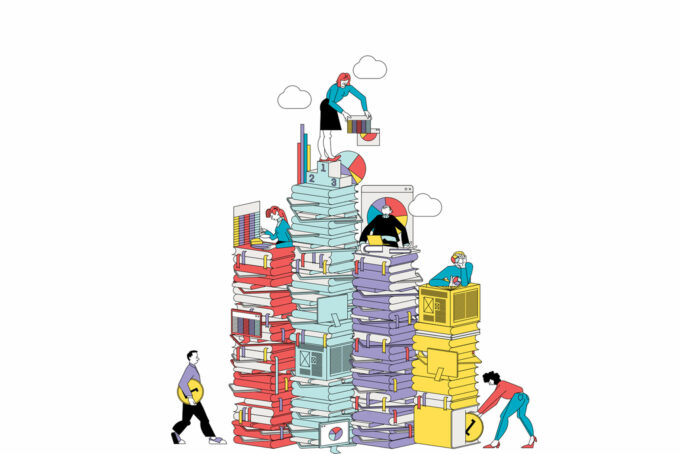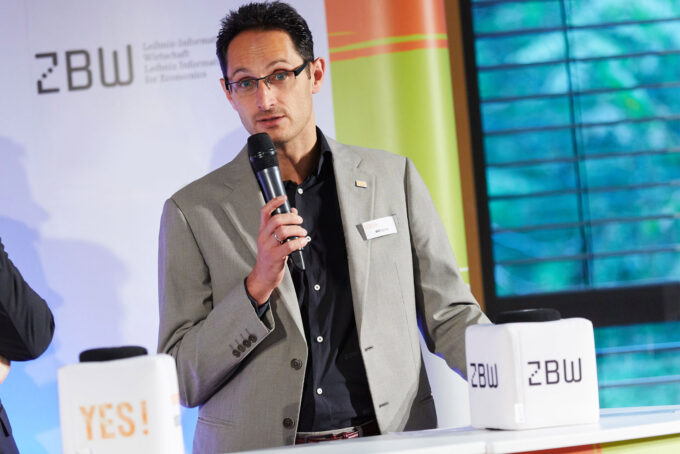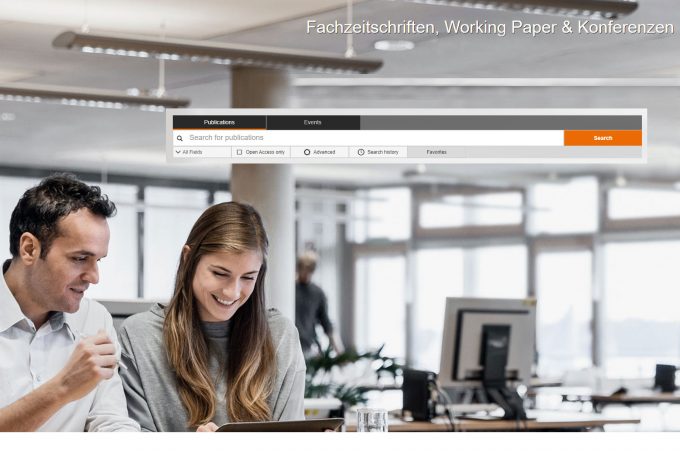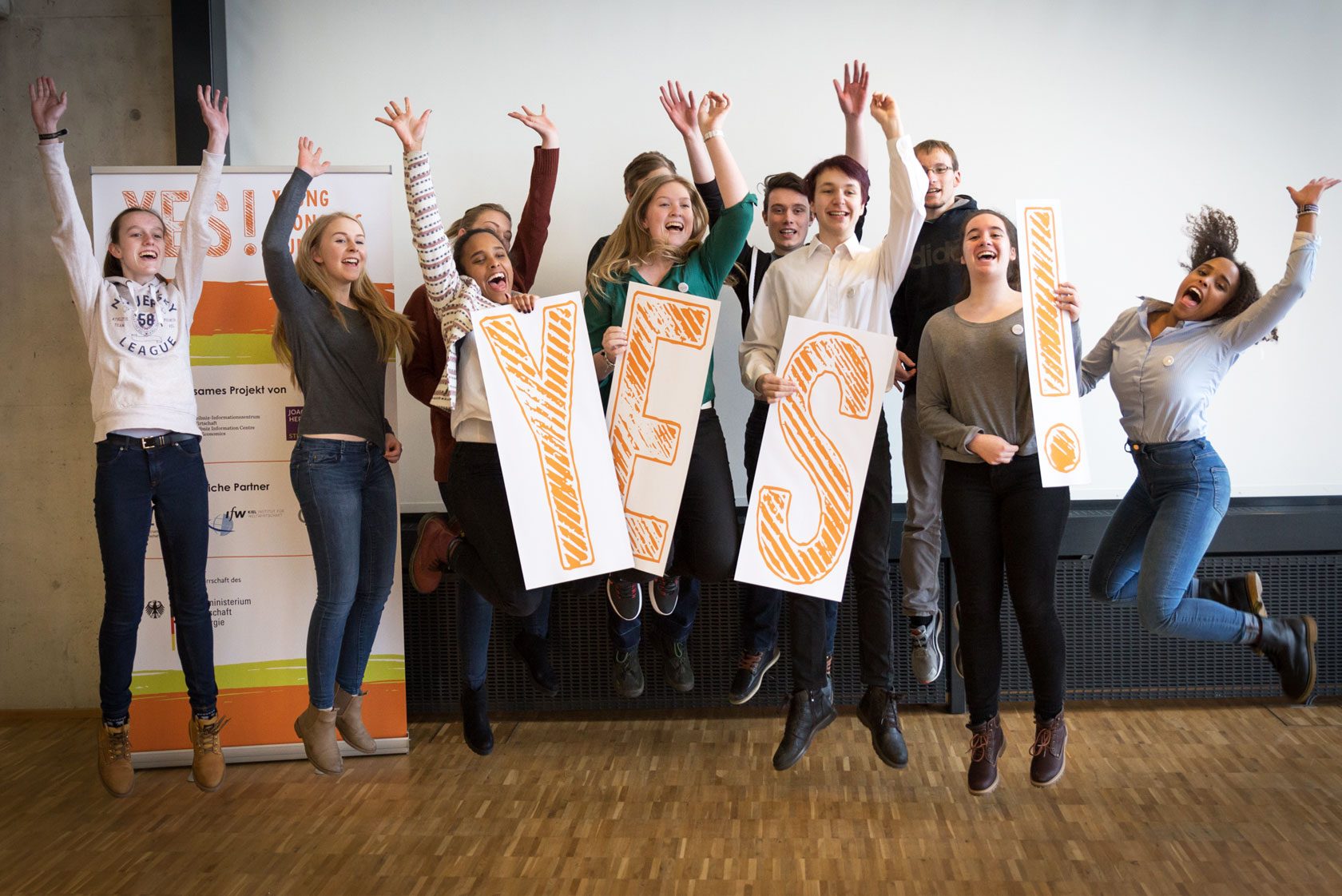
YES! – When Students Develop Ideas for the Future
The "YES! – Young Economic Summit", organized by the ZBW – Leibniz Information Centre for Economics in collaboration with the Joachim Herz Stiftung, is gaining momentum. Until 2019 students from 50 schools over the country will be asked to send in their ideas for solving today's most challenging problems. A look inside the YES! team's work.
by Jochen Bast, Kai Meinke and Willi Scholz
Do you still remember, back in about grade 10 or 11, when you spoke with a Nobel laureate about integration projects? Or when you presented your ideas for a concept to integrate refugees to a minister president and his cabinet? Several of the participants in the „YES! – Young Economic Summit“ have a very clear memory of this in any case.
These are just two examples from the first years when successful student teams were given the opportunity to subject their ideas which they developed as part of the “YES! – Young Economic Summit” youth project to a practical everyday test.
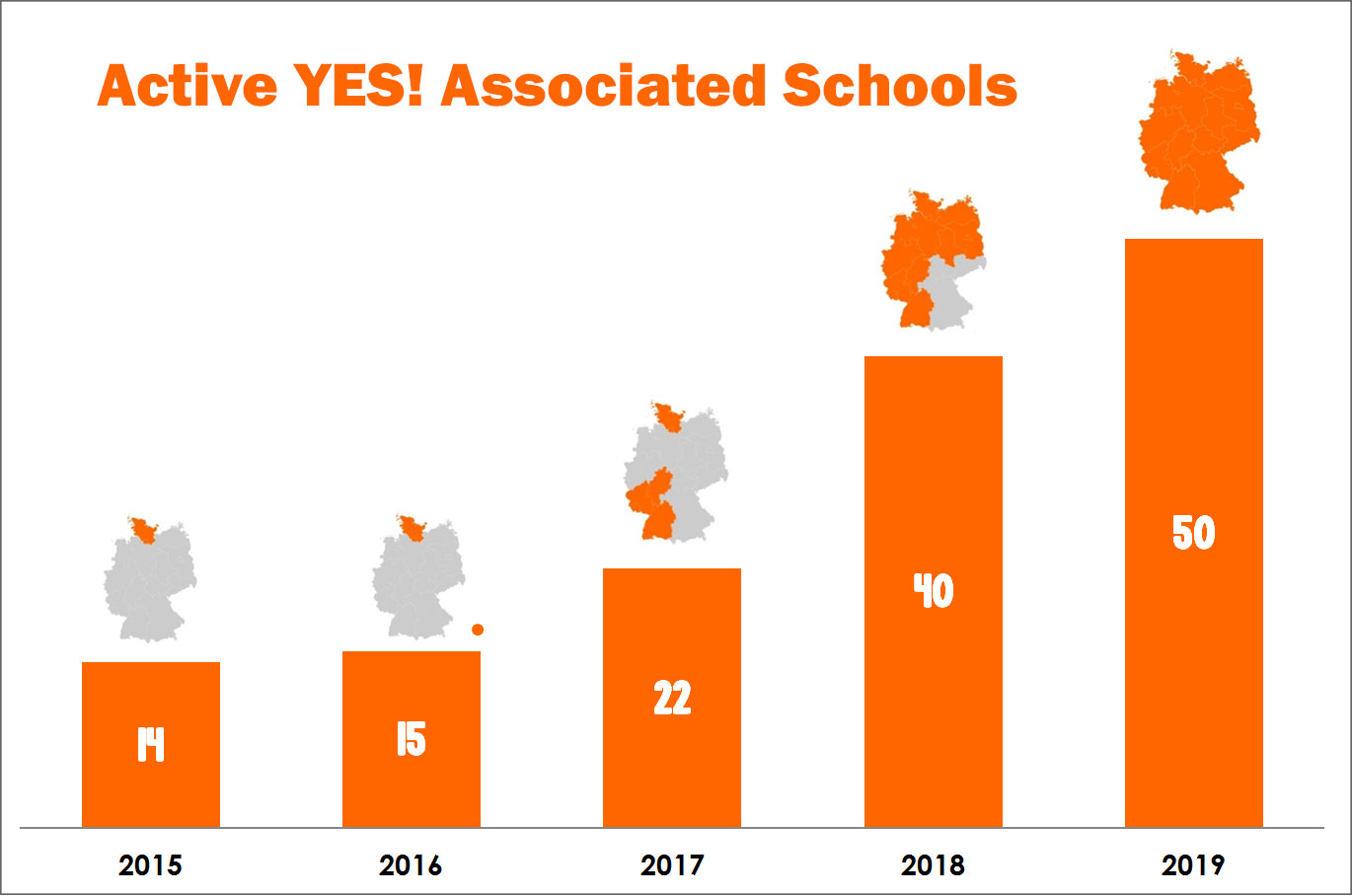
Now, 2017 will see YES! take place for the third time. Under the patronage of the Federal Minister for Economic Affairs and Energy, Brigitte Zypries, 21 student teams from six states will participate. Over the next three years, the joint project of the ZBW and the Joachim Herz Stiftung will grow to become a national competition with around 50 associated schools from all states.
Questioning, researching, formulating
Now that the two February kick-off events which saw over 300 participants in Mannheim and Kiel are behind us and the topics have been allocated to students from six states, the research phase has begun.
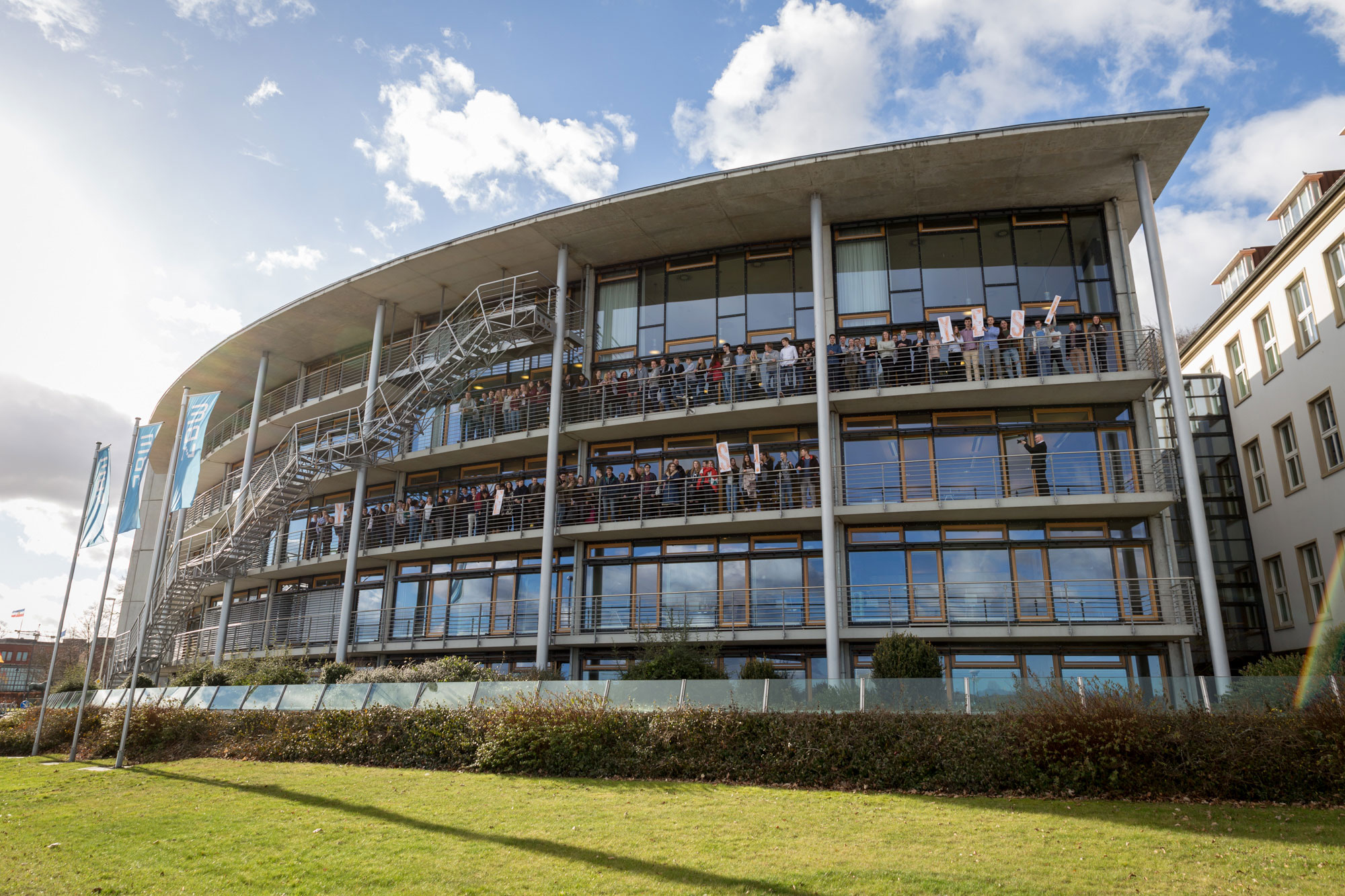 The 2017 YES! teams at the kick-off in Kiel
The 2017 YES! teams at the kick-off in Kiel
Among other things, they deal with topics such as “New working time models in the digital age”, “National innovation strategies”, “The strengthening of nationalism and populism”, “Strengthen fact-based debates!”, or “Post-growth society”. The list of topics chosen this year is diverse and covers challenges that are faced in the economy, environment, society and politics.
Tobias Prüßmeier, a student at the Hohe Landesschule in Hanau, summarized what draws him to YES! while at the kick-off at the ZEW in Mannheim:
“I am very interested in political questions and have been looking at the issue of European integration for a long time. Presenting the solutions in English at the end of the competition is a challenge, but it’s also a great way to gain experience. I’m looking forward to it.”
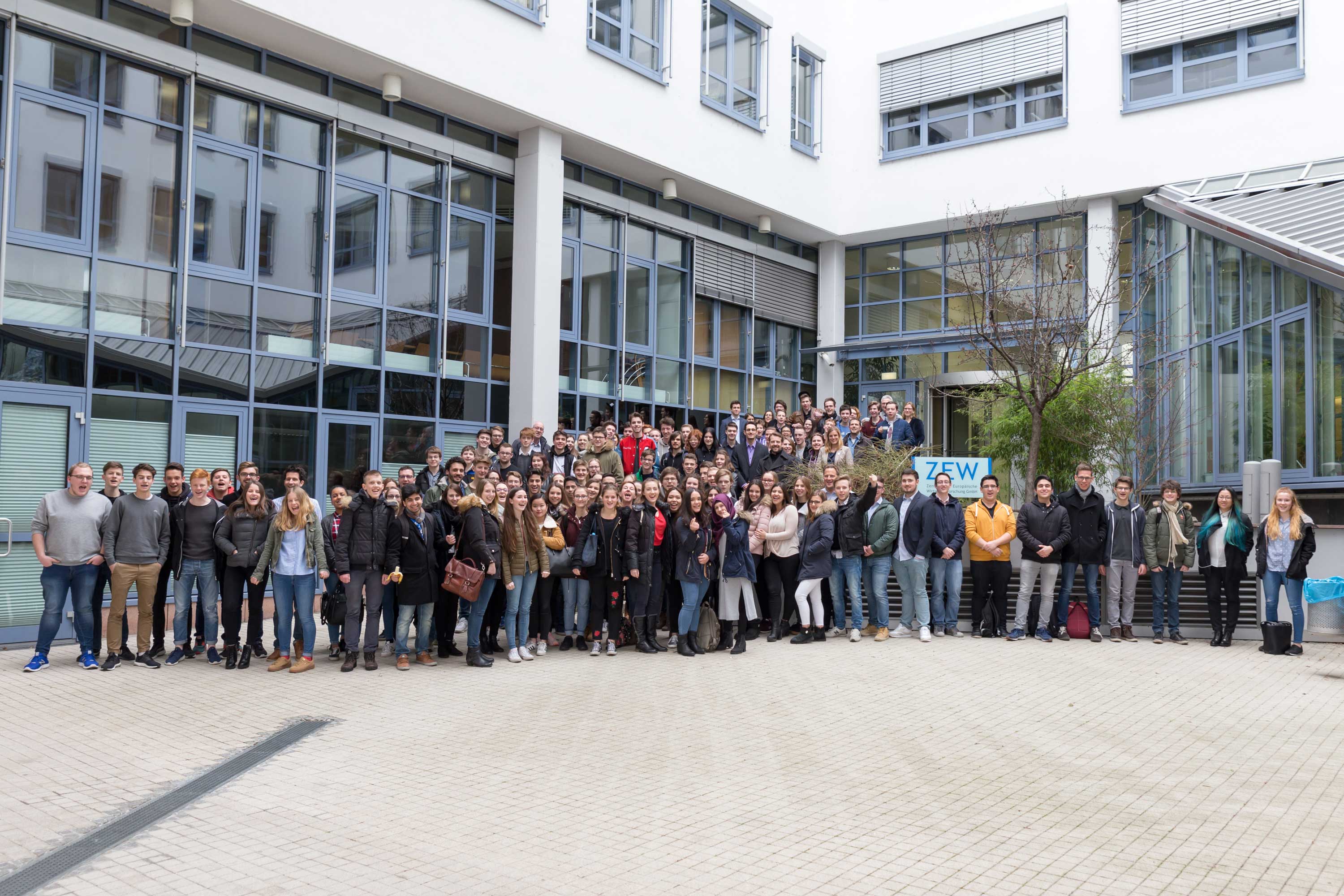
The 2017 YES! teams at the kick-off in Mannheim
Imparting competence at all levels
Experts from the four Leibniz Institutes ZBW, GIGA (German Institute of Global and Area Studies), the Kiel Institute for the World Economy (IfW) and the Centre for European Economic Research (ZEW) are available to assist the teams.
The ZBW trains the young research groups on information literacy, focusing on how to carefully research their topics. In workshops on media literacy, they learn how to competently present themselves and their subjects to the public via social and traditional media. In the learning modules, the ZBW is increasingly focusing on digital formats such as the guided walk, video conferencing, webinars, digital learning pathways and interactive learning videos.
Following this learning phase, a discussion with researchers from the four Leibniz Institutes takes place which addresses the respective solutions. It is inspiring to see how the groups of students get involved in their topics, develop ideas and exchange thoughts with the researchers. They take up proposals and use the services of the ZBW such as EconStor and EconBiz in order to thoroughly present their topics in English in front of 400 guests at the final event on 28 and 29 September 2017.
Opportunities for research and politics as well
The idea and the format of the YES! – Young Economic Summit offer opportunities for young people to learn and benefit from new ideas. Prof. Achim Wambach, PhD, President of the Centre for European Economic Research (ZEW), has this to say about the importance of YES!: “I consider it extremely important to strengthen the exchange of economics with society, and in particular with students. YES! is a great tool for this, especially in a time when Brexit, the unresolved problems of the Eurozone, the emerging separation tendencies in global trade after the US presidential election and general certainties of the past decades are being called into question.”
The fact that the YES! team’s solution proposals made it to the Cabinet of Minister President Torsten Albig in Schleswig-Holstein and have already been presented in Federal Ministries shows that the ideas that emerged from YES! have the political class listening.
And the teams’ journey continues after YES! On 29 and 30 May 2017, the winning teams from 2016 will present their concepts in Berlin at the „Global Solutions: Think 20 Summit“, where the ZBW is involved as a partner. Awaiting them will be an international stage which aims to provide solutions for the G20 countries, which in turn will meet in Hamburg in July.
It will be interesting to see which doors open for the 2017 YES! winners. One sure thing, as past experience shows, is that the ideas are taken seriously.
Additional Information: YES! in social media and networks
- Website
- YES! Fanpage on Facebook
- @yes_summit on Twitter
- YES! on Instagram
- YES! on Flickr
- YES! on YouTube
Autoren: Jochen Bast, Kai Meinke, Willi Scholz (ZBW – Leibniz Information Centre for Economics)
View Comments

Open Science in Practise: Open Doctoral Thesis
What is it like to stick resolutely to the principles of open science? We asked...

